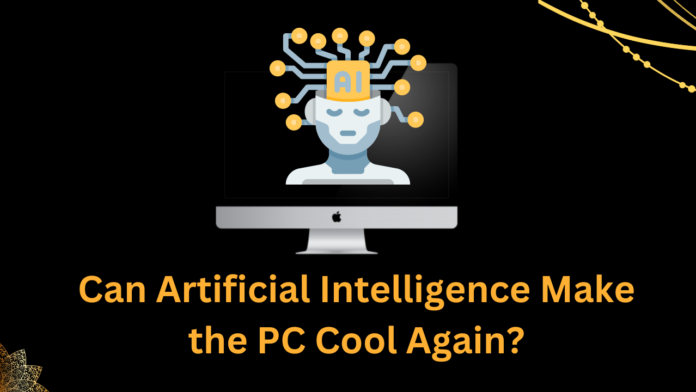Microsoft, HP, Dell, and others unveiled a new type of laptop designed to work with artificial intelligence. Analysts expect Apple (iOS) to do the same.
The race to put artificial intelligence everywhere is circling through the good old laptop computer.
Microsoft on Monday introduced a new type of computer designed for artificial intelligence. Microsoft says the machines will run AI systems on chips and other gear inside computers to make them faster, more personal, and more private.
The new computers, called Copilot+ PCs, will allow people to use A.I. To make it easy to find documents and files they’ve worked on, emails they’ve read, or websites they’ve browsed. Their A.I. The system will also automate tasks like photo editing and language translation.
The new design will be incorporated into Microsoft’s Surface laptops and high-end products running the Windows operating system offered by Acer, Asus, Dell, HP, Lenovo, and Samsung, some of the world’s largest PCs. C are makers.
A.I. The PC, industry analysts believe, could reverse a long-standing decline in the importance of the personal computer. Demand for the fastest laptops has declined over the past two decades as a lot of software was moved to cloud computing centers. A strong connection between the internet and a web browser was required by most people.
But A.I. Stretches this long-distance relationship to its limits. ChatGPT and other generative A.I. The tools run in data centers filled with expensive and sophisticated chips that can handle the largest, most sophisticated systems. Even the most advanced chatbots take time to receive a question, process it, and send back a response. It is also very expensive to manage.
Microsoft wants to drive A.I. systems directly on the personal computer to eliminate this downtime and reduce costs. Microsoft is downsizing A.I. systems, called models, to make it easier to run outside of data centers. More than 40 will run directly on laptops, he said. Smaller models are generally not as powerful or accurate as the most advanced A.I. systems, but they are improving enough to be useful to the average user.
“We are entering a new era where computers not only understand us but can predict what we want and our intentions,” Microsoft Chief Executive Satya Nadella said at an event at its headquarters in Redmond, Wash. I said.
Analysts expect Apple to follow suit at its conference for software developers next month, where the company will announce an overall strategy to integrate Siri, its virtual assistant, and more A.I. Its capabilities in laptops and iPhones.
Whether A.I. PC takeoff depends on companies’ ability to create compelling reasons for buyers to upgrade. Initial sales of these new computers, which cost more than $1,000, will be small, said IDC analyst Lin Huang, who closely follows the market. But by the end of the decade—assuming that A.I. The tools will be useful — they’ll be “everywhere,” he predicted. “Everything will be A.I. PC.”
The computer industry is looking for a shock. Consumers are upgrading their computers less frequently, as the music and photos they once stored on their machines now often reside online, on Spotify, Netflix, or iCloud. Computer purchases by companies, schools, and other institutions have finally stabilized after peaking — and then crashing — during the pandemic.
Some high-end smartphones are already integrating A.I. chips, but sales have fallen because the features “are still not sophisticated enough to trigger a rapid upgrade cycle,” Mehdi Hosseini, an analyst at Susquehanna International Group, wrote in a research note. It will be at least another year, he said, before significant enough progress will lead consumers to take note.
At the event, Microsoft showed off new laptops that it compared to photographic memory. Users can ask Copilot, Microsoft’s chatbot, to use a feature called Recall to find a file by typing a query using natural language, such as, “Can you find me the video call that I did with Joe recently where he had the ‘I’ like the New York coffee mug then the computer will be able to instantly retrieve the file containing the details because the A.I are what the user does on the laptop.
“It remembers things I forget,” Matt Barlow, head of marketing for Microsoft’s Surface computers, said in an interview.
stored directly on the laptop for privacy, and will not be sent back to company servers or future A.I. will not be used in training. Pawan Davalori, a Microsoft executive overseeing the Windows system, said the recall system would allow users to opt out of sharing certain types of information, such as visits to a certain website, but that some sensitive data, such as financial and private information. Browsing sessions, by default, will not be monitored.
Microsoft also demonstrated live transcripts that translate in real-time, which it said will be available on any video that plays on a laptop screen.
Microsoft announced last month that AI models small enough to run on phones that he says perform almost as well as GPT-3.5, the massive system that initially powered OpenAI’s ChatGPT chatbot in late 2022. What was the debut?


